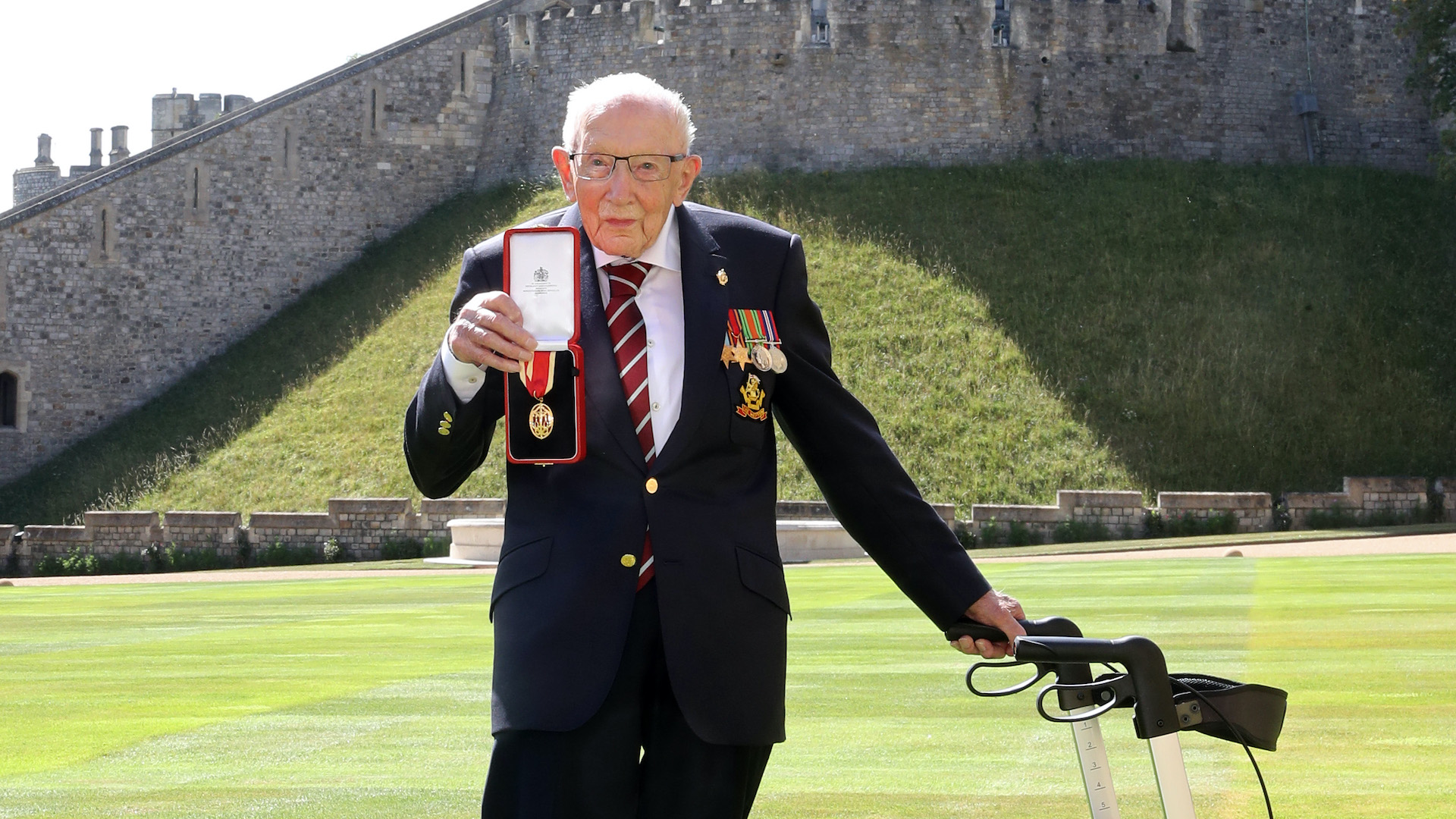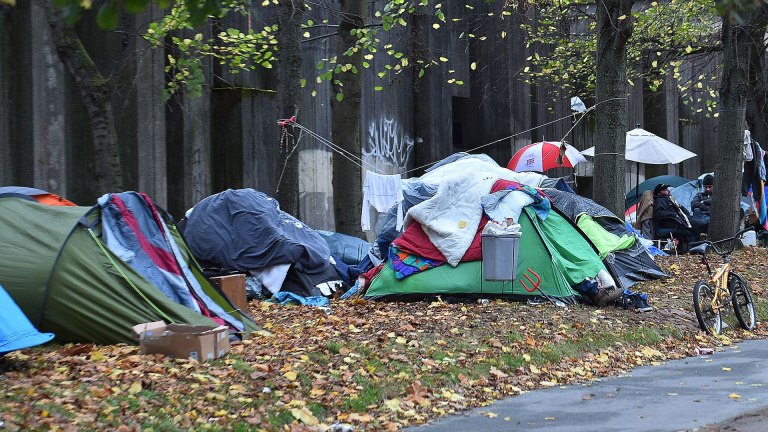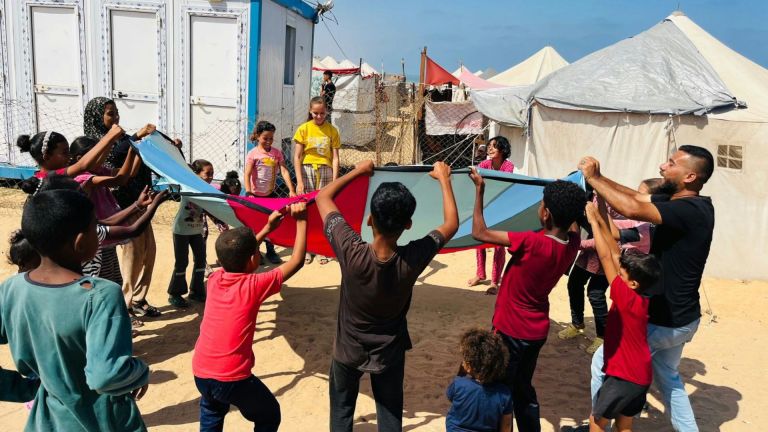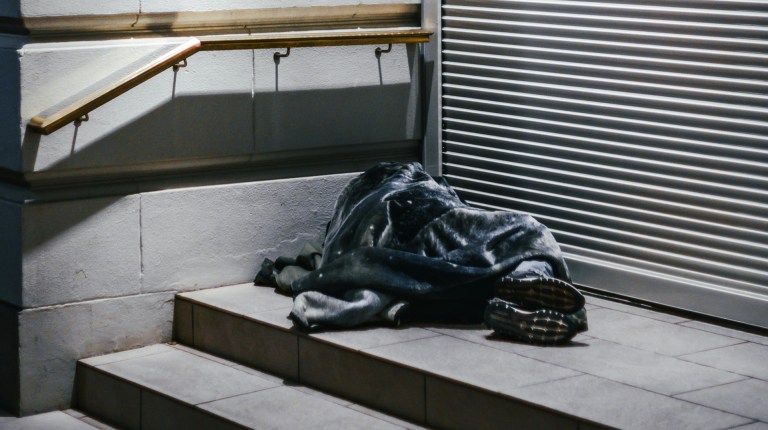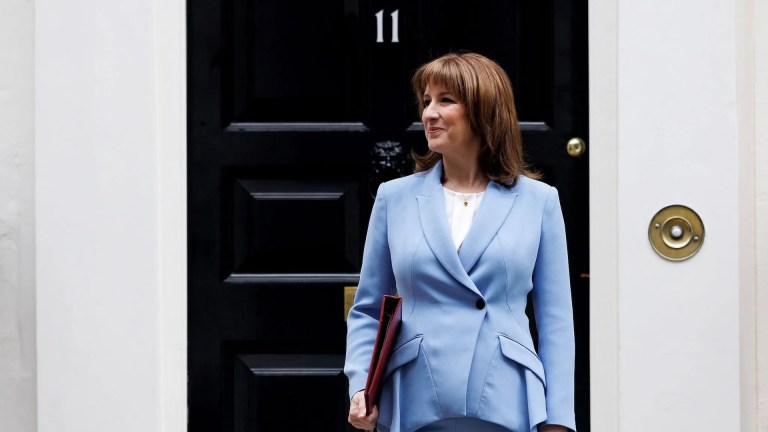If I had told Captain Sir Tom this time last year about everything that would happen, what would he have said?
“Never in this world could I anticipate this,” he says over video call from his home in the village of Marston Moretaine where he lives with his daughter Hannah and her family. “Having thought about it, it really is quite amazing. I have enjoyed every moment and still do.
“We set off in a very small way trying to raise some money and it grew and grew and grew. It got bigger and better and it’s so heartening to think that we raised the spirits of so many people and so much money for such a good cause.
“We received donations from all over the world, for which we thank everybody. The National Health Service deserved every penny we raised.”
He had became one of the world’s most recognisable figures, practically overnight. And he enjoys the attention. “Fortunately I’m not displeased with it,” he says with a smile.
Advertising helps fund Big Issue’s mission to end poverty
What makes Captain Sir Tom’s story so extraordinary is, in the best possible sense, how ordinary he is. Leading by example, he demonstrated that small acts from any one of us could make a big difference and prove the power of positive action. That resonated with people and rippled around the world.
“Certainly very ordinary,” says Captain Sir Tom, agreeing with the description of himself and belying his title. “I mean, before it all started I was just Tom Moore and I’m still the same person. Nothing’s changed. Don’t believe I’m some mystic person. I’m not. I’m still just Tom Moore who’s doing his best, trying to help as much as I can.”
As well as countless achievements and accolades, including a knighthood and number one single (You’ll Never Walk Alone recorded with Michael Ball), Captain Tom also found the time to write his autobiography, Tomorrow Will Be A Good Day. He became not only the oldest person to have a number one single but also the oldest author to top the bestseller chart.
“I just hope that when people read the book they won’t decide to sue me for some things I’ve said about them!” he laughs.
Hannah, sitting beside him to repeat some questions for century-old ears (and it seems to complete the comedy double act), chips in: “It’s alright. I think most of them are dead.”
What does he think readers of the book who know him only from his charity challenge will be most surprised to learn?
Advertising helps fund Big Issue’s mission to end poverty
“I don’t really know,” he laughs. “So many things have happened, I don’t know what will surprise people. It surprises me that I’ve written the book at all.
“I really can’t answer that question. You may be able to answer that better than me. Were there things that stood out most in your mind having read the book?”
Where to begin…
The wry sense of humour surprises, as does the sly eye for the ladies – whether that’s the “blonde-haired, blue-eyed angel” Vera Lynn who entertained his regiment when it was stationed at a jungle camp near Chittagong in Bangladesh in 1943 or the “delightful” Naga Munchetty from BBC Breakfast who was one of the first to interview him on TV. He writes: “meeting her in person one day was something I decided to add to my bucket list” – and he ticked it off when she came to visit him the day the book was published in September.
The revelation that had me reaching for YouTube, however, was the section about being a contestant on the Blankety Blank Christmas special in 1983 with Terry Wogan and a panel including Patrick Moore, Freddie Starr and Ruth Madoc from Hi-de-Hi. Captain Sir Tom still has the famous chequebook and pen.
Were there parts Hannah was surprised by? “Yeah, loads of things,” she says. “I was helping to proof it and all the way through I kept going, Oh, really?!”
Advertising helps fund Big Issue’s mission to end poverty
But, she adds, not because there were family secrets, just because as a child “you don’t tend to care what your parents did before you were around”.
Like any of our parents and grandparents, their story becomes remarkable by the passing of time. Captain Sir Tom’s book records a life that spans perhaps the most significant century in human history. He has witnessed unimaginable change. Speaking to him it’s hard to fathom that the man on the Zoom screen spent the first 11 years of his life in a house without electricity, lit by candles and gas lights.
He remembers the Hindenburg flying over his hometown of Keighley in 1936 before crashing so famously a year later, watching newsreels of Jesse Owens winning four gold medals in Berlin, the Jarrow Marchers who trekked from Newcastle to London to protest unemployment in 1936.
At the outbreak of war, he helped his parents fit blackout curtains, heard the bombing of Bradford on August 31 1940. Conscripted and joining the ‘Dukes’ regiment, 20-year-old Private Moore 193763 was deployed to India and Burma where he was a dispatch rider, relaying messages by motorbike back and forth through enemy territory.
After the war, Captain Tom had a number of jobs: quarry man, selling Woman’s Own door-to-door, concrete supplier. He is old enough to have been suspicious of the swinging Sixties. Well, some aspects of it. He writes: “We’d moved into the era of the Beatles, the Rolling Stones and rock and roll, but I was never much of a fan – although I thoroughly approved of the mini-skirts that went with the era.”
Then there is the more personal history, made relatable by Captain Tom’s frankness: the relationship with his beloved Uncle Billy, a motorcycle racing champion who died by suicide; Uncle Arthur, who Tom now realises spent his life hiding his sexuality. The difficult 18-year marriage to his first wife Billie who struggled with mental health issues; becoming a father at 48 after marrying his second wife Pamela, then Pamela’s slow, heart-breaking deterioration as Alzheimer’s and Parkinson’s tightened its grip. Captain Tom visited her nursing home every day until her death in 2006, aged 71.
Advertising helps fund Big Issue’s mission to end poverty
Tom then moved in with Hannah. But instead of a quiet old age his nineties became one of his most active decades, travelling solo to India and Nepal, ticking off another item on the bucket list by flying over Mount Everest.
Then came his fall, the virus, lockdown. Captain Tom counts himself truly fortunate to have been surrounded by family; Hannah, her husband Colin and two grandchildren Benjie, 16, and Georgia, 11.
Whatever the problems are at the moment, eventually we will all get through that and we will always be a little bit happier than we are today
Can he imagine how tough lockdown must have been for people who were by themselves?
“I’m sure it would have been very, very difficult,” Captain Tom replies. “My wife was in hospital for a long time. Several years. One day she said to me, ‘If you didn’t come and see me, I would be very lonely’. That struck me right to the heart. But where she was there were also loads of elderly people who never, ever had visitors, day after day, year after year. They must have been very, very lonely on their own.
“If you’re an old person, virtually housebound, unless you have a good neighbour or a good service who will help, it must be very, very difficult.
“They might not be old. Disabled people, those who are really short of income, living on the breadline. That is also difficult. We’ve got to look after one another from the beginning to the end. And that’s something I’m sure you and your outfit will help because you are there to help.”
Advertising helps fund Big Issue’s mission to end poverty
These kind words about The Big Issue from Captain Tom are heartening. Having struggled through a lot of troubled times, what advice does he have for our vendors or others who find themselves in what seem to be hopeless circumstances?
“You’ve got to be optimistic. You’ve got to believe that things will get better. They certainly will.
“Throughout the years of my life I’ve had bad times but I’ve always got through them. And I will say to everyone, whatever the problems are at the moment – and we have problems, nationally and worldwide – eventually we will all get through that and we will always be a little bit happier than we are today.
“I’ve always been looking to the future. I still say tomorrow will be a good day.”
Planning for the future and establishing a legacy led to the creation of the Captain Tom Foundation. Drawing on memories of fellow patients at his wife’s nursing home, one of its key aims is to combat loneliness, as well as supporting bereavement, and working on education programmes to improve lives both in the UK and overseas.
Hannah explains: “We all feel as a family that we’ve been touched by the world, genuinely. And that might sound ridiculous, but it’s how we feel.
Advertising helps fund Big Issue’s mission to end poverty
“We realised my father had become a beacon of hope around the world. His picture was on the front page in almost every country in every continent. A hundred and sixty-three countries donated to the original JustGiving site. That means that 162 countries donated not to the NHS, because they were getting nothing from that, they were donating for hope and positivity.”
Hannah believes that it was being part of a multi-generational family that enabled the Captain Tom story to reach so many, with the children helping to answer emails and setting up the technology for interviews. All ages learning from each other. Should we all be listening more to the innocence of children and the experience of older generations?
“Young people have all the world in front of them,” Captain Tom says. “They need some help but I believe they must do their part. I’m afraid there are a lot of old people who are living on their own, who are very lonely. I think that is something that young people could help with. A lot of old people would only be too pleased if someone came to them and said hello or just a few words to lighten their day. Young people have an enormous job to do.”
How young people will be impacted by the pandemic is a continuing concern. It looks certain to affect their future for decades to come, just as the Second World War changed the lives of everybody who lived through it.
What are the lessons learned during times of crisis that can serve us well, no matter what lies ahead?
Advertising helps fund Big Issue’s mission to end poverty
“You’ve got to realise that we’re all in this together,” he says. “It’s not an individual thing. Everyone’s on the same level. We can all be friends and all attack this rather unpleasant time together.
“When I was in the army, we all worked as a team. It’s the same now, we’re all battling the same thing and it’s up to everyone to do their part to get through this virus. Together, as a unit, we will get through and everything will be alright in the end.”
Millions raised, a foundation to continue the work, nobody has achieved so much in such little time. So what is left on the bucket list?
“I would love to go all over the place,” Captain Tom says. “I’ve been to several countries and there’s so many I haven’t been to. I would love to go to them all and tell all the different people thank you.”
“Oh, a world tour?” asks Hannah.
“Whether I shall live to see all these countries…”
Advertising helps fund Big Issue’s mission to end poverty
“You’ve mentioned Barbados, Route 66, going back to India,” says Hannah, trying to work out their itinerary. “What would be the top five places you’d like to go to?”
“No, to say that might be favouritism. Somebody might be offended if I didn’t say them.”
With a world tour on the horizon, there will be even less downtime than before. With all that’s happened in the last few months, has Captain Tom found time to relax?
“I don’t relax very often because there’s usually quite a lot going on,” he says.
“I’m still enjoying it and enjoying speaking to people like you. I’ve spoken to so many different people who I’ve never had the opportunity to speak to before. It’s been most interesting.
“Life is not too bad.”
Advertising helps fund Big Issue’s mission to end poverty
Captain Sir Tom Moore’s autobiography Tomorrow Will Be A Good Day is out now (Michael Joseph, £20). His children’s picture book One Hundred Steps is also out now (Puffin, £12.99)
@stevenmackenzie
Image credit: Chris Jackson/Getty
Big Issue vendors need your help now more than ever. More than 1,000 vendors are out of work because of the second lockdown in England. They can’t sell the magazine and they can’t rely on the income they need.
The Big Issue is helping our vendors with supermarket vouchers and gift payments but we need your help to do that.
Pleasebuy this week’s magazine from the online shop ortake out a subscription to make sure we can continue to support our vendors over this difficult period. You can even link your subscription to your local vendor withour new online map.
Advertising helps fund Big Issue’s mission to end poverty
Thank you all so much for your ongoing support.
